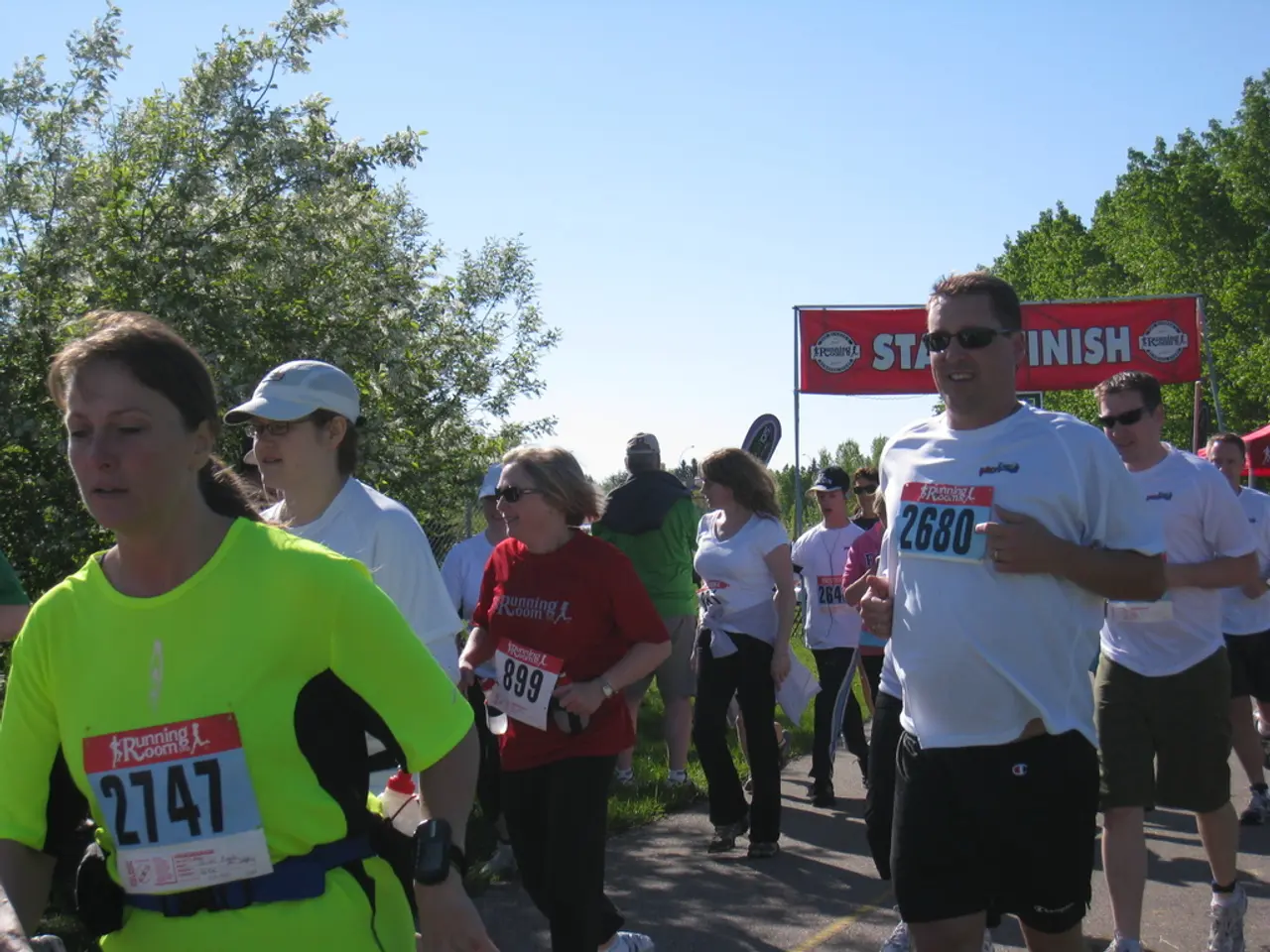Revelation of High Kidney Injury Rates Among Marathon Runners in Recent Small-Scale Study
The world of marathon running, while physically demanding, comes with its own set of health risks. One such concern is the potential for Acute Kidney Injury (AKI), a condition that can lead to temporary or sometimes more serious kidney dysfunction.
AKI is primarily caused by reduced blood flow to the kidneys, a situation that can occur during prolonged exercise. This is particularly relevant for marathon runners, as the intense physical exertion can lead to a rapid decrease in kidney function.
Studies have shown that AKI is not an uncommon occurrence among ultra-endurance athletes, including marathon runners. In fact, research indicates that about 16%–50% of long-distance runners may meet the diagnostic criteria for acute kidney injury during or after races of long distances[4].
The symptoms of AKI can include nausea, dehydration, and high blood pressure, and in severe cases, it can be fatal. Other risk factors for AKI in marathon runners include severe dehydration, prolonged muscle damage, environmental heat stress, and the use of nonsteroidal anti-inflammatory drugs (NSAIDs)[1].
Dehydration, a common issue in marathon runners, can cause serious kidney damage or failure. Symptoms indicative of dehydration-related kidney problems include decreased urine output, dizziness, and low blood pressure, emphasizing the importance of adequate hydration during marathon events to prevent kidney stress or injury[3].
A study published in the American Journal of Kidney Diseases found that over 80% of participants in the 2015 Hartford Marathon showed early signs of AKI[2]. However, it's important to note that more research is needed before declaring runners at risk of kidney disease. For instance, in the tested runners, the signals of AKI disappeared after two days[1].
Preventive strategies for AKI in marathon runners include proper hydration, avoiding NSAIDs, and monitoring kidney function if symptoms arise after races[1][3][4]. It's also crucial for runners to be aware of the signs and symptoms of AKI and seek medical attention if necessary.
Competitors in the World Marathon Challenge, a competition where competitors complete a marathon on each continent in seven days, are also at risk of AKI due to the physical demands and potential for dehydration and heat stress[5].
In conclusion, while the risks of AKI in marathon running are significant, with the right precautions and awareness, runners can mitigate these risks and enjoy the sport safely.
References: 1. https://www.ncbi.nlm.nih.gov/pmc/articles/PMC7246955/ 2. https://www.ajkd.org/article/S0272-6386(18)30510-6/fulltext 3. https://www.ncbi.nlm.nih.gov/pmc/articles/PMC3762380/ 4. https://www.ncbi.nlm.nih.gov/pmc/articles/PMC5322044/ 5. https://www.worldmarathons.com/world-marathon-challenge/
- Maintaining good mental health is crucial for a runner, as the mental resilience required for long-distance races like marathons can be substantial.
- Beyond physical fitness and endurance, a balanced diet rich in essential nutrients plays a vital role in a runner's health and wellness, ensuring optimal performance and recovery.
- Chronic diseases such as diabetes and heart disease, often managed through proper diet and medication, can pose additional challenges for marathon runners, requiring careful planning and monitoring.
- Apart from AKI, other health risks associated with marathon running include chronic conditions, mental health issues, and nutrition-related concerns, making health and wellness a holistic concern for runners.




